Analysis: Pakistan's diplomacy on trial
Imtiaz Gul explores the implications of India revoking Article 370 and Pakistan's options to counter New Delhi
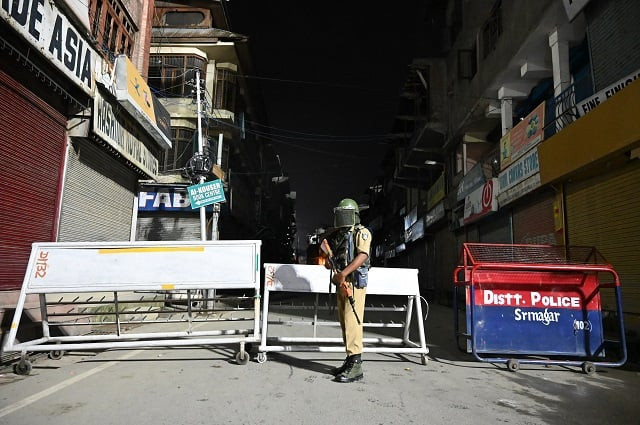
An Indian paramilitary trooper stands guard at a roadblock at Maisuma locality in Srinagar on August 4, 2019. - Fears of an impending curfew in the disputed region of Kashmir ratcheted up tensions on August 4, as nuclear rivals India and Pakistan traded accusations of military clashes at the de facto border. PHOTO: AFP
The forceful annexation of Jammu and Kashmir which the Bharatiya Janata Party, Rashtriya Swayamsevak Sangh and Shiv Sena had turned into an electoral promise has come to fruition.
As of now, the government of India led by Narendra Modi has delivered on its promise and Modi has proven true to the reputation of a religio-nationalist leader who wants India to be dedicated only for Hindus.
The events of the past six years, in which mob lynchings and radical statements on Kashmir have resonated all over India, also prove that the BJP is out to disfigure the secular facade that India’s founding fathers, Jawahar Lal Nehru and Mahatma Gandhi, had built by treating all people living there as equal citizens.
We have to remember that the BJP and its like-minded parties have for over 25 years been advocating for the abrogation of Article 370. In fact, all the right-wing parties had succeeded in 1994 to get through a resolution which said that Pakistan must be made to vacate the part of Kashmir under its control.
Even India's National Security Adviser Ajit Doval, in the recent past, has issued strong statements on Kashmir. In one that he peddled at various university lectures, he said that the "occupation of Jammu and Kashmir by Pakistan was the only unfinished agenda of the partition of the Indian subcontinent in 1947."
Pakistan rejects India’s decision to abolish occupied Kashmir special status
With this extreme radical step, the Indian right-wing government has tried to draw a line. This, however, is likely to ignite more fires of resistance and resentment.
This is quite an unfortunate unfolding of events since April 2005, when former president General (retd) Pervez Musharraf visited Delhi and held meetings with all shades of Kashmiri leaders.
The annexation act is a gross violation of the agreement of the Maharaja of Jammu and Kashmir with the Indian government.
Under the agreement, India was to defend the territory of Kashmir, protect people’s lives, honour and property. It was followed by several United Nations restraints on the Indian government regarding the number, behaviour, and location of the Indian forces.
Under the first agreement, these forces are subordinate to the Kashmiri government, but after today's abrogation of Article 370 all previous regulations, agreements, and mechanisms stand invalidated.
According to India, Kashmir now is an integral part of Indian territory. This was on the cards for long but nobody had expected that it would happen so soon.
The initial fear was that the government was moving to abrogate Article 35A, which puts a limitation on the acquisition of property by non-Kashmiris in Indian-occupied Kashmir.
With the abolition of Article 370 altogether, India has drawn a line for its future discourse and possible negotiations with Pakistan.
This means that whenever the government of India agrees to resume dialogue, New Delhi might argue that Kashmir is part of its territory and Pakistan, under the UN Security Council resolution, is required to vacate the part under its administration.
There is now fear that India might annex the territory of occupied Kashmir territory and then call on Pakistan to vacate the part under Islamabad's control.
Even if India now agrees to allow some sort of facilitation or mediation by a third party, it could place the condition that negotiations can only proceed once Pakistan withdraws its troops and governmental infrastructure from the rest of Jammu and Kashmir.
Such a move will create an extremely dangerous situation for both Pakistan and India, as well as for other countries.
For now, Pakistan has to wait and see which way China leans and what stance is taken by the other permanent members of the UN Security Council.
Is Pakistan drifting away from China?
The only best available option to Pakistan is recourse to Beijing. Islamabad should approach their leaders for advice because of two reasons; first that the Chinese operate on very long-term parameters and the second being Pakistan’s limited options and precarious economic situation at home.
Of course, Russia is another member of the Security Council which can provide some guidance to Pakistan. However, it will be the China-Pakistan consultative process that can help Islamabad face the crisis created by India.
Thirdly, Pakistan also needs to approach the British government. Although the United Kingdom has its own crises to deal with right now, there is still a huge Kashmiri diaspora there which is against the Indian occupation of the region.
That diaspora can be used to mobilise opinion within the UK parliament as well as capitals of other key European states to further Pakistan’s cause.
According to Dr Nazir Gilani, a London-based Kashmiri jurist, what has happened in IoK would not have happened at all if National Conference leader Sheikh Mohammad Abdullah had not volunteered a good behaviour reference in favour of Indian security forces during his speech at the UNSC on February 5, 1948.
Also if People’s Democratic Party (PDP) leader Mufti Mohammad Sayeed had not entered into an alliance with BJP on March 1, 2015, to form a government.
He argued that the National Conference legitimised the foothold of the Indian army and PDP helped BJP gain a share in the government, for the first time in the history of Kashmir.
Indian politicians played their cards with no holds barred and betrayed Sheikh Abdullah and Mufti Sayeed.
The big question that faces us now is whether the big five at UNSC will be able to force India in reversing its actions through the Rajya Sabha.
Will the big five - barring presumably China - move at all and arraign India for trampling standing UN resolutions? Or will their economic interests trump all international laws and humanitarian conventions?
Has Pakistan, too, lost an opportunity to provide constitutional cover to Azad Jammu and Kashmir, at least along the lines of Article 370?
It was clear from the very beginning that no country - let alone India - would give up even an inch of territory under its control.
Pakistan's diplomacy is also on trial. It has been quite lacklustre at the UN and similar fora. For instance, the Foreign Office of Pakistan could not spot that a UN draft report in June 2019 referred to Indian-occupied Kashmir as the “Indian State of Jammu and Kashmir” at eight different points - paragraphs 4, 6, 9, 18, 46, 52, 70 and 132.
One wonders if Pakistan officially objected to this as the draft report was sent to Islamabad and New Delhi on June 12 and they were given time till June 17 to "provide any factual comments".
For now, we know there are explosive times ahead. Apart from its internal tribulations, Pakistan now faces another major foreign policy test.


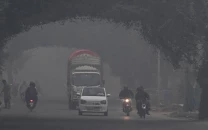

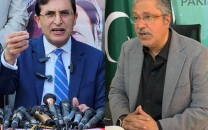

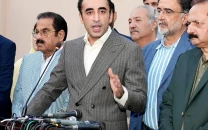



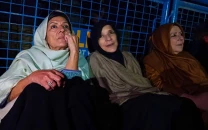







COMMENTS
Comments are moderated and generally will be posted if they are on-topic and not abusive.
For more information, please see our Comments FAQ